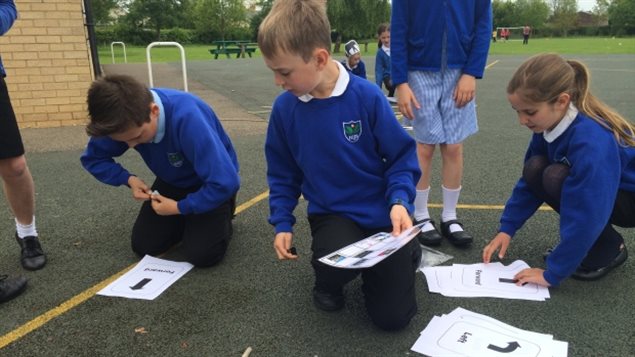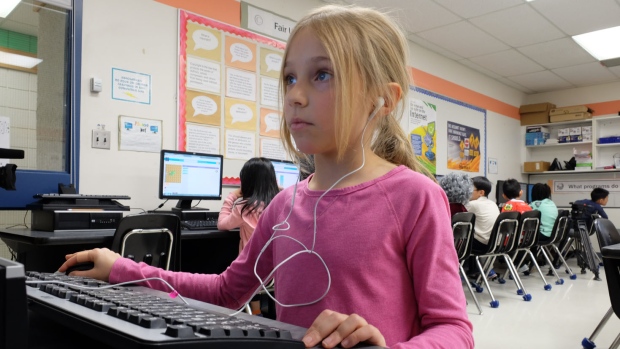Countries such as Britain and Australia have introduced it as a core subject in their primary and secondary school systems.
“They are full citizens online”
On Monday, Canada’s Minister of Innovation, Science and Economic Development, Navdeep Bains, announced $50 million, invested over two years, for coding programs in our education systems, from Kindergarten to grade 12, which is the end of high school.
Under an intiative known as CanCode, the money will be distributed to several organisations and Media Smarts, based in Ottawa, is one of them.
Matthew Johnson is the Director of Education at Media Smarts,
He describes it as a national centre for digital and media literacy. He says they “work to ensure that all Canadian children and youth have the critical thinking skills they need to understand and use all of the media that they consume in an engaged and critical way.”

Students at ‘Histon and Impington Junior School’ in Cambridge, England, learn basic coding concepts away from the computer lab. (CBC)
Media Smarts conducts original research, raises awareness of the need for this literacy and produces resources for teachers and parents and young people that Johnson says, “helps spread these skills and habits”.
“Digital technology is networked”
Johnson says they were particularly pleased to see the government “recognise the importance of critical digital literacy alongside some of the more tech-specific skills that are often included in efforts like these.”
Media Smarts employs 5 key concepts to guide their work, the first, is that “Digital technology is networked”.
Johnson says digital literacy is bigger than coding. He says this increased education will allow children to use these technologies safely, and take full advantage of them.
He says “they need to understand that they are full citizens online”.
“The networked nature of technology means that it’s so much easier than it was before for them to make a difference, whether that’s in leveraging consumer power to make changes in the how the businesses that control the online platforms that they use do business, whether it’s making a difference in their offline communities or whether it’s being involved in political action, these technologies really provide the opportunity to empower young people, and all of us, in ways that we never have been before.”







For reasons beyond our control, and for an undetermined period of time, our comment section is now closed. However, our social networks remain open to your contributions.